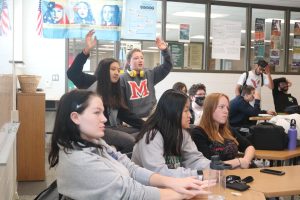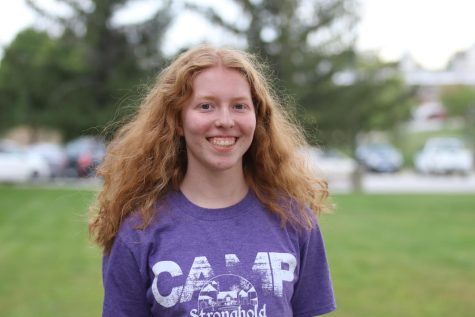What are midterm elections?
A look into what happens at midterm elections and why they are important to West High.
November 4, 2022
Midterm elections happen every four years, in the middle of the president’s term, thus the name midterm elections. While we are not electing a new president, there are many candidates running for other government positions.
“Midterm elections sometimes get overlooked because it’s not a presidential election,” said Gary Neuzil, a government teacher at West High.
Despite the fact that we are not electing a president, we will be electing a third of the senate, all 435 members of the house of representatives, governor and many city and county positions as well.
All of these positions play an important role in our government. For example, the public will vote on members of the Senate and the House of Representatives on Nov 8. These two groups make up congress, which is the part of our government that writes laws that are then approved (or vetoed) by the president, in addition to approving supreme court justices.
“The Senate and the House of Representatives are very important in our process of changing things, of passing laws, of many different things. So I think it’s extremely important,” said Laura Nelson ’23. “They have a lot of impact on our lives, so I think it’s very important to vote. If you elect lawmakers, that’s one step closer to seeing the laws that you want on the books.”
In addition to affecting laws that are passed, the decisions made at this election could affect the country’s politics in the future.
“If you look at the House and at the Senate, the majority could switch. The House and the Senate, who are primarily Democrats, could be Republican. And that would have an impact on president Biden’s agenda, and I think it would have an impact going into the 2024 presidential race. So there is a lot at stake,” said Neuzil.
Voting is especially important for high schoolers and other young adults because, historically, they are less likely to vote than any other age group.
“I think students, since they don’t vote, are getting written off. And their point of view and their perspectives are not being heard by congress because they don’t vote. Now, if they were to vote in blocks, larger and larger, that will be a time when candidates and public officials do have to listen. So, I would say that they’re missing an opportunity to be represented,” said Neuzil.
Christina Bohannan, the Democratic candidate for the House of Representatives for Iowa’s first congressional district, which is roughly the southeast corner of the state, comments on what issues she thinks will be most important this election.
“We need to bring down inflation. That’s very important. Costs are just too high, people are really struggling to afford groceries and gas,” said Bohannan.
Inflation is a national issue, affecting people all over our country. However, as Bohannan is running to represent a section of Iowa, she is also focused on more local issues.
“We have to invest in our healthcare here in Iowa, especially our rural healthcare. We are losing hospitals, emergency rooms, we don’t have enough physicians and nurses, and we definitely don’t have enough mental health professionals[…] We also need to bring down the cost of healthcare. People are really struggling with affording that, so I would really want to bring down the price of prescription drugs and ensure that people have affordable and high-quality health care,” said Bohannan.
Also in Bohannan’s priorities are the right to abortion and environmental sustainability.
Whatever your political views, politics are important, as they decide what laws are written and what our tax money is spent on. Even those who can’t vote, whether because they are under 18 or are not citizens, or cannot vote for another reason, can still impact politics.
“They can get involved with volunteering for candidates. They can influence [those around them through] the role they have on social media, the way they can communicate with their parents if they’re aware of something, if they care about something or a political ideology.” Said Neuzil. “If you think about how many times they use their phones during my class, let alone during school, they’re communicating. Communication is why they, one, should be getting information and two, should be sharing information on their political views.”








